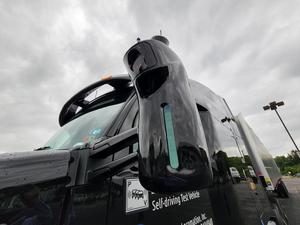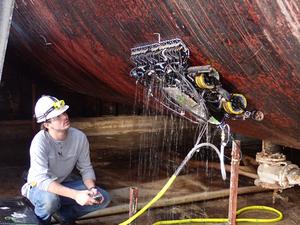
A new report from the Washington, D.C.-based Brookings Institute has identified four main challenges Pennsylvania must overcome to promote innovation efforts throughout the commonwealth, efforts the state is lagging behind when compared to others.
Brookings researchers Mark Muro, Rob Maxim and Yang You served as the main authors of the 107-page report, which was commissioned by the downtown-based Hillman Foundation and titled "Commonwealth of innovation: A policy agenda for revitalizing Pennsylvania’s economic dynamism."
The four main challenges outlined in the report were:
- The state government "has seemed to lack a clear commitment to innovation" and it's letting its core innovation programs "languish." The report did not specify a core program in particular and instead cited overall declining "core innovation funding" in Pennsylvania from 2003 to 2023 following its analysis of data from the Pennsylvania Department of Community and Economic Development. "Since 2010, governors have kept a low profile, and years of disinvestment have eroded the size and relevance of the state’s innovation efforts," the report states. "Most starkly, Pennsylvania reduced its investments in innovation programs by nearly two-thirds during the Great Recession, and has failed to rebuild in subsequent years."
- Pennsylvania is lagging behind its peers in converting top-quality research into firms that not only grow on their own, but also those that then go on to contribute significant employment growth in the state overall. Per the report's authors, "shortcomings" in the state's entrepreneurial ecosystems are potentially prohibiting the creation and scale-up of new firms in advanced industries. It noted that Pennsylvania's high concentration of academic research in fields like IT are "failing to translate into above-average employment concentrations in pertinent advanced industries" except for those in the pharmaceutical and life sciences industries. "Thin" startup formation and its subsequent hiring are also adding to this challenge. Contributing to this problem most, though, is reduced state investment, the report claimed.
- Innovation beyond Philadelphia, Pittsburgh and State College is also struggling. The report found that only about 1% of university-based research and development in Pennsylvania occurs beyond the state's major university hubs, which is where advanced industry employment and vibrancy are also concentrated. Pennsylvania isn't necessarily unique in this challenge, however.
- Access to the state's innovation economy remains unequal when those who participate in it most are analyzed by race and gender. According to the report, Black, Latino or Hispanic, and Indigenous people amount to nearly 19% of Pennsylvania’s population, yet less than 10% of undergraduate STEM degrees and only 5% of doctorate STEM degrees earned in the state are held by these populations. Additionally, the report found that women hold less than 40% of STEM degrees in Pennsylvania, a figure that drops to a third when accounting for doctorate STEM degrees. These disparities are also found in statewide entrepreneurship, where just 1% of firms in Pennsylvania have a majority-Black ownership or a majority-Latino or Hispanic-ownership, the report found. Only 19% of firms in Pennsylvania have majority-female ownership, per the report.
In addition to identifying four main challenges that are impacting the state's innovation economy, the report also looked at four initiatives that are reinventing innovation in the Keystone State as well as potential revenue ideas that would continue to support this industry sector in the future.
"In order to build a more competitive and inclusive economy in the coming years, the commonwealth must act now to reclaim its former position as an innovation leader," the report's executive summary concluded.









